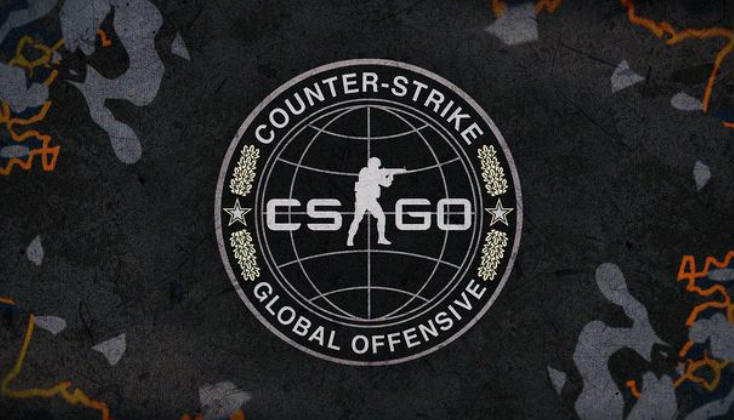Most casual CS:GO bettors stick to moneylines or try their luck on who wins the pistol round. But if you’re looking to extract sharper value from competitive play, especially in top-tier events and majors, you need to go deeper—into round handicaps and total rounds markets. Both options offer solid alternatives to straight winner betting and can help you navigate form volatility, map dynamics, and matchup depth. But they’re not interchangeable. Understanding when and how to use each makes the difference between guessing and forecasting.
Let’s start with the core concept: Round handicap betting means betting on a team to cover a spread of rounds. If you back Team A -3.5, they need to win by four rounds or more on the selected map. If you take Team B +4.5, they can lose by four or fewer—or win—and you still cash. Total rounds betting is more straightforward: you bet whether the combined number of rounds played on a map will go over or under a specific total, usually ranging from 25.5 to 26.5 in balanced matchups.
Key Strategic Differences Between the Two Markets
The first major difference lies in who you’re backing. Handicaps are team-specific. You’re making a directional call on one side’s strength. Totals, however, are more about tempo and resistance—how long both teams can stretch the map. This creates natural strategic divergence. A strong favourite with explosive T-side entries and dominant CT utility might crush weaker teams 16-6. Perfect for -5.5 or even -6.5 handicaps. But that same dynamic ruins Over 26.5 bets. If the underdog can’t push to double digits, the total dies even if you’re right about the winner. On the flip side, if you’re unsure who wins but expect a grind—a 16-14 or 19-16 overtime—you avoid the handicap and look at Over 26.5 or Over 27.5 with better margin.

When to Use Round Handicaps
- You trust one team’s consistency on the given map.
- You’ve identified a clear mismatch in entry duels, economy control, or mid-round calling.
- The favourite has a history of fast-closing halves and strong conversions on man advantage rounds.
- Opponent struggles as T-side on that specific map pool entry (e.g. Vertigo or Ancient).
Note: Round handicaps are more volatile in BO1s than in BO3s. Variance spikes early, and a slow start can destroy a -4.5 bet even if the better team wins.
When Total Rounds Is the Better Play
- Two teams are defensively solid but have inconsistent executes—leads to longer halves and more eco rounds.
- Historical head-to-heads show tight games regardless of ranking.
- You suspect the underdog will overperform but don’t trust them to win outright.
- Map pick heavily favours defensive starts, like Nuke CT-side or Overpass.
In these cases, a bet on Over 26.5 can hit even in a 16-12 loss—where the dog had strong early rounds or pushed a comeback late before losing.
Underrated Factors That Influence Both Markets
Map choice matters more than most punters admit. Mirage, for example, is volatile and high-paced, leading to more early-round swings and blowouts. Ancient or Overpass tend to grind longer, especially between teams that trade defaults for map control. Pistol round win percentage also has a hidden effect. A team that often wins both pistols in a map starts with a likely 6-0 edge. That inflates the handicap and can ruin totals. Save frequency is another variable. Teams that save more on CT-side (e.g. ENCE or MOUZ) slow tempo, preserve weapons, and extend the map—good for totals, bad for handicaps.
Sample Round Handicap vs Total Round Outcomes
| Matchup | Map | Final Score | Handicap Result (Fav -3.5) | Total Rounds (O/U 26.5) |
| Vitality vs BIG | Nuke | 16–10 | ✅ (won by 6 rounds) | ❌ (under 26 rounds) |
| G2 vs Heroic | Inferno | 16–14 | ❌ (won by 2 rounds only) | ✅ (Over 26.5 hits) |
| FaZe vs OG | Mirage | 16–7 | ✅ (clear blowout) | ❌ (way under) |
| NaVi vs Fnatic | Overpass | 16–13 | ❌ (won by 3) | ✅ (29 rounds total) |
As seen here, handicaps reward dominance, totals reward closeness. Choose accordingly.
What the Books Don’t Always Price Well
Live bettors take note: books often overreact to short-term momentum in CS:GO. If a team wins pistol and converts, the round handicap shifts heavily—even if the matchup is close. That’s when savvy punters grab the over, knowing economy swings will balance things out later. Additionally, if a team is up 12–7 but showing signs of collapse (losing mid, poor retakes), a live +5.5 handicap on the trailing team might offer serious value.
Think Structure, Not Score
CS:GO betting isn’t just about who’s hot. It’s about how maps unfold: utility discipline, tempo control, economy depth. Round handicaps reward dominance and efficiency. Total rounds reward tension and endurance. Choose based on structure, not just star names. The next time you stare at a -4.5 line vs an Over 26.5, ask yourself—not who wins—but how. That’s where your edge is.